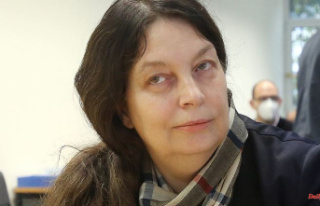What a first year that was for the traffic light coalition. More pressure is hardly possible, and so cracks and predetermined breaking points showed up early on. The fact that the alliance has lasted is therefore no small matter. But the time to get the traffic light on the road to success is running out quickly.
The first year is over today. The traffic light coalition now has about two years left before the next federal election overshadows day-to-day politics. The conflicts that will take place at the end of the current legislative period are foreseeable: an FDP that is distancing itself from the traffic light and flirting with the Union. A power struggle in the Greens between Annalena Baerbock and Robert Habeck for the next chancellor candidacy. And an SPD that has to distinguish itself against the Greens who have moved up to par.
The more joint successes the coalition can show by then, the sooner Chancellor Olaf Scholz can keep things together until the federal elections in 2025 and the alliance can continue to exist beyond that. The chances are not that bad, because the governing coalition has actually made a remarkable start. Not because she succeeded in everything, far from it. But the traffic light's extremely steep learning curve in its first twelve months could become the basis for a finally successful second year in government.
The first, and perhaps most important, lesson is the end of the supposed love marriage between the three very different parties. The enthusiasm about each other when the party leaders presented their coalition agreement after weeks of sleep deprivation, completely euphoric and wanting to be completely different from the previous government alliances, has turned within months into sometimes violent personal friction. In the spring, arms exports and the first two relief packages caused quite a stir, and the negotiations on the third relief package and the energy strategy for the winter did not go ahead without public controversy. Only then did a healthy pragmatism take hold in the coalition: in the end, only what is achieved together decides on success, not personal affection. Feigning this again and again took an unnecessary amount of strength.
The fact that Scholz didn't blow up the store before his first birthday shouldn't be underestimated. The historically high pressure in the first year - the pandemic, Russia's attack on Ukraine, record inflation in Germany and Europe - could have torn established government constellations. Everyone involved had to swallow toads, and far bigger ones than they could have imagined signing their coalition agreement.
With a view to its Russia and energy policy, the SPD had to admit the failure of a lifelong lie and is still struggling with the new dominance of the military in politics. The Greens have brought coal-fired power plants back to the grid and have had to come to terms with the extended lifetime of the last German nuclear power plants. At best, the FDP was able to defend the debt brake on paper. The truth is that its chairman, Federal Finance Minister Christian Lindner, is taking on record debt so that the increased energy prices do not break the necks of consumers and companies. The base and factions of all three parties have followed this painful path.
The coalition leaders therefore have less to worry about their own power base - most likely Lindner after the partly disastrous state election results in 2022. Problems are more of home-made: Robert Habeck is concerned both with the gas levy and with the question of secure energy supply for the winter that has begun real goofs. To this day, Chancellor Scholz has not followed a strict line on arms deliveries to Ukraine, while Defense Minister Christine Lambrecht, who he expressly brought into office, has repeatedly alienated allies and Scholz's promise of more than 2 percent of gross domestic product annually for the Bundeswehr under her authority expending, not being able to implement.
In the meantime, the FDP, with its self-chosen role as a blocker, has actually proven to be a brake on the traffic lights. It thus plays a large part in the unnecessarily expensive, complex and inefficient electricity and gas price brake: Lindner had rejected direct state intervention in the energy market until autumn, but declared direct payments to consumers impossible. When he finally bowed to the convening of a gas price commission, it hardly had time to work out a well-rested solution.
And then there's the chancellor: the image of arrogance doesn't just stick to him at home. Scholz never promised to show more human warmth as head of government. Many Germans don't want to miss that. However, this character trait does not help when looking for friends in other government centers or when moderating conflicts within the governing coalition, where Scholz had to make use of his policy competence early on in the nuclear power plant dispute between Habeck and Lindner.
So many things did not work out in the first year of government. Almost every cabinet member has been confronted with their own shortcomings and learning needs, although none as brutally as Anne Spiegel, the family minister who failed last spring. Anyone who is capable of self-reflection and learns from mistakes can benefit from them. Habeck has reorganized his ministry, Lindner has refrained from further publicly distancing himself from the SPD and the Greens for weeks, and the chancellor is also increasingly at peace with his appearances, trying to be a little less Helmut Schmidt flippant. So everything is still possible for the traffic light. How much should become clear by the summer. Then, of the three years before the next federal election casts its shadow, half will be gone.












